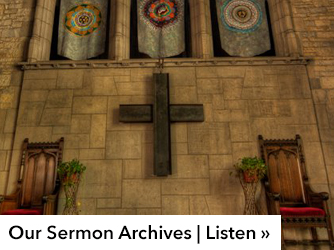After talking about the power of stories, it is time to craft our own “spiritual autobiographies” – stories of the development of our faith. While we are doing this as a congregation during our 9am Bible Study time, you can follow this page for weekly updates and to do your own creating from afar!
January 12 session notes
-Note the difference between a “case” (something that happened) and a “story” (the wisdom that emerges from that happening). We are not writing a series of cases/trying to craft a complete history, but will articulate the major beliefs that we have/once had and mine our experiences to tell the “story” of how we got to that place.
-Howard Thurman notes the “time, effort, and imagination” required to arrive at a place of understanding. This work we are doing together will require all 3, and we are particularly interested in imagination – playing around with ideas swirling inside of us – without judgment or a need to “do” anything just yet. This means that you will perhaps feel uncomfortable spending time with an old understanding/belief that you now reject, but it is important to take ownership of what we once believed or still believe.
-Reading the two creation stories in Genesis, we discover that:
1. there are many sources that come together to write Genesis (J,E,D,P) and that we also have many “sources” inside of us to tap into in writing this. I think of my identity as a son (that’s one source), or a college student (another), or a pastor (yet another), and how each of those have shaped my faith in explicit ways. Feel free to call upon your many selves/sources in crafting your spiritual autobiography.
2. those sources may at times seem conflicting: let them. Don’t worry about making it all fit together nicely
ASSIGNMENT 1:
-Make a list of the many sources/identities you will call upon to tell your faith story. A list for now is fine, but if you want to write more, do it!
ASSIGNMENT 2:
-Answer these 3 questions:
- What beliefs/understandings do you have that you have had for most of your life?
- What beliefs do you have that are more recent/not a part of your tradition of origin?
- What beliefs did you once have but don’t have anymore?
January 19 session notes
ASSIGNMENT:
January 26 session notes
-We read Daniel 6 – one of the most famous stories in the Bible – and made two observations:
1. When remembering this story on your own, before reading, notice how parts are smushed together, and some things are left out entirely. This will happen in recording your faith story as well. Try as much as possible to spend time in the details, and where gaps are present in your memory, try to ask others that were part of the story. The frailty of memory is such that our brains often try to fill in missing data on its own/at your request. If your story has a gap, let it remain there. Don’t be afraid to say “I don’t know” or “I can’t remember.”
2. Notice the emotions contained within the story (found in the main characters) and the emotions we bring to the story when reading it. We find ourselves saying, “I wasn’t worried because I knew God would save Daniel,” and we tend to do that in our own stories: now that we are wiser/stronger, we project that strength onto a past version of ourselves. Allow yourself to tell the story of how you felt back then, without covering up emotions or reactions that you may now be ashamed of. If you were scared/angry/happy, use those emotions when telling the story and not your current state.
-To a list that already had (from last week!) “people” and “places” that have shaped our spiritual journey, we are now adding “emotions”, “texts” (can include works of art), and “moments” (significant turning points/events/eras) that have come to shape your spiritual journey.
ASSIGNMENT:
It is now time to consider one aspect of your faith journey and tell us a story about it. We aren’t writing the full spiritual autobiography yet, but taking one belief/person/event/place/text/emotion – one of these or any combination of them – and write a one (1) page story. These may be some helpful prompts:
-what happened?
-who was involved?
-what did you do or say?
-what emotions did you experience (from yourself and others)?
-how did this impact my faith?
-what am I doing with this now?
-is there an image in the story that is at the core for you?/What image does this remind you of?
-share a memory or story in your life that is similar to this one.
Again, keep this focused on your faith journey. So it may be an event that happened outside of church, but always be asking “How did/does this impact my faith?”
Beginning next week, we will invite-but-not-demand folks to share these one page stories as we are developing our fuller spiritual autobiographies. Whether you decide to share or not, prepare this short story as if someone else will read it.


